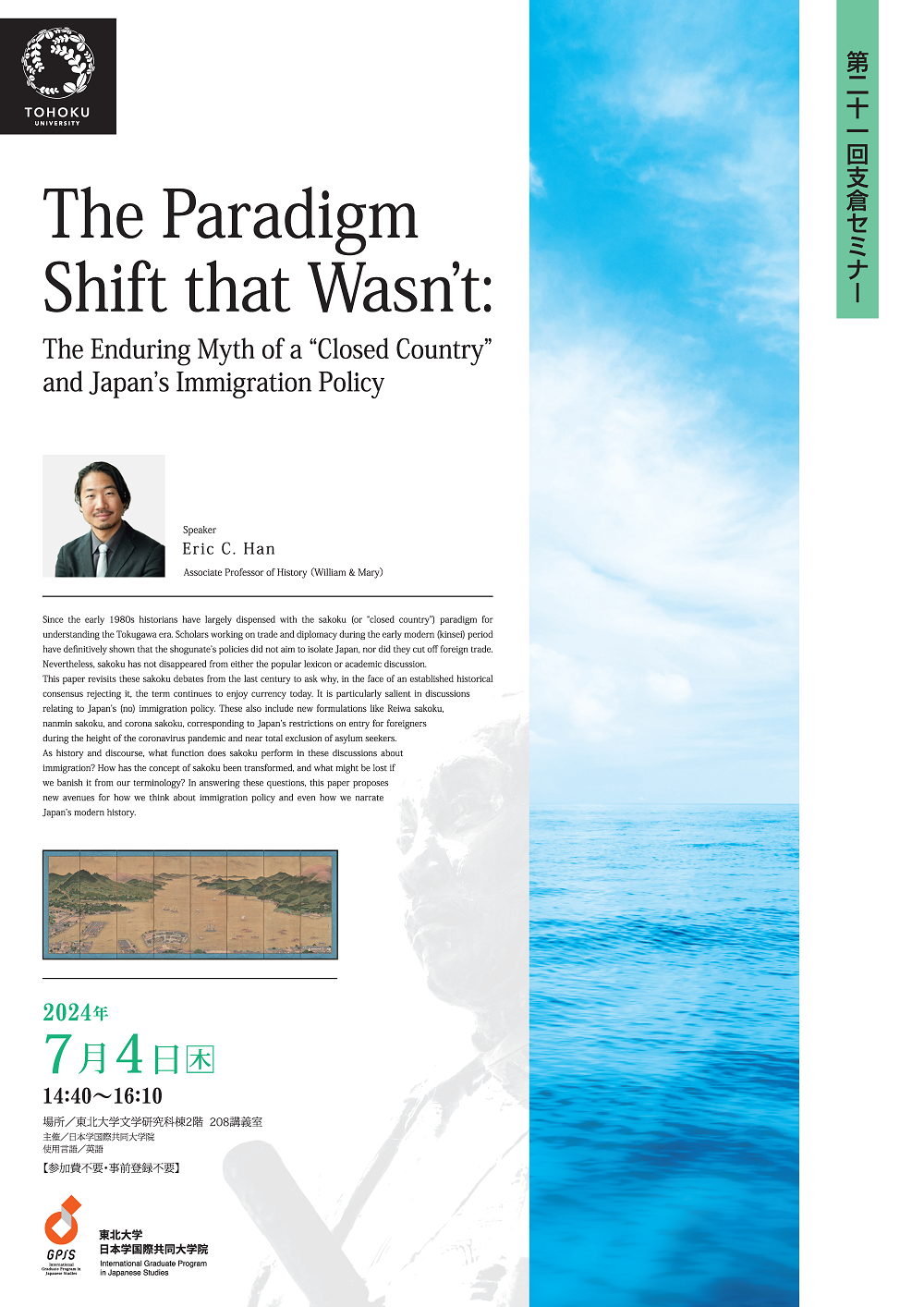The 21st Hasekura Seminar "The Paradigm Shift that Wasn’t: The Enduring Myth of a “Closed Country” and Japan’s Immigration Policy"
| Date | July 4, 2024 2:40~4:10p.m. |
|---|---|
| Place | Kawauchi-minami Campus, Room #208, Graduate School of Arts and Letters,Tohoku UniversityMAP |
| Host | International Graduate Program in Japanese Studies |
| Traffic | |
| Contents | 【講師】
Eric Han(Associate Professor of History, William & Mary) "The Paradigm Shift that Wasn’t: The Enduring Myth of a “Closed Country” and Japan’s Immigration Policy"
abstract
Since the early 1980s historians have largely dispensed with the sakoku (or “closed country”) paradigm for understanding the Tokugawa era. Scholars working on trade and diplomacy during the early modern (kinsei) period have definitively shown that the shogunate’s policies did not aim to isolate Japan, nor did they cut off foreign trade. Nevertheless, sakoku has not disappeared from either the popular lexicon or academic discussion. This paper revisits these sakoku debates from the last century to ask why, in the face of an established historical consensus rejecting it, the term continues to enjoy currency today. It is particularly salient in discussions relating to Japan’s (no) immigration policy. These also include new formulations like Reiwa sakoku, nanmin sakoku, and corona sakoku, corresponding to Japan’s restrictions on entry for foreigners during the height of the coronavirus pandemic and near total exclusion of asylum seekers. As history and discourse, what function does sakoku perform in these discussions about immigration? How has the concept of sakoku been transformed, and what might be lost if we banish it from our terminology? In answering these questions, this paper proposes new avenues for how we think about immigration policy and even how we narrate Japan’s modern history. 【使用言語】 English ※ Participation is free. Regisration is not required.
|
| Contact |




